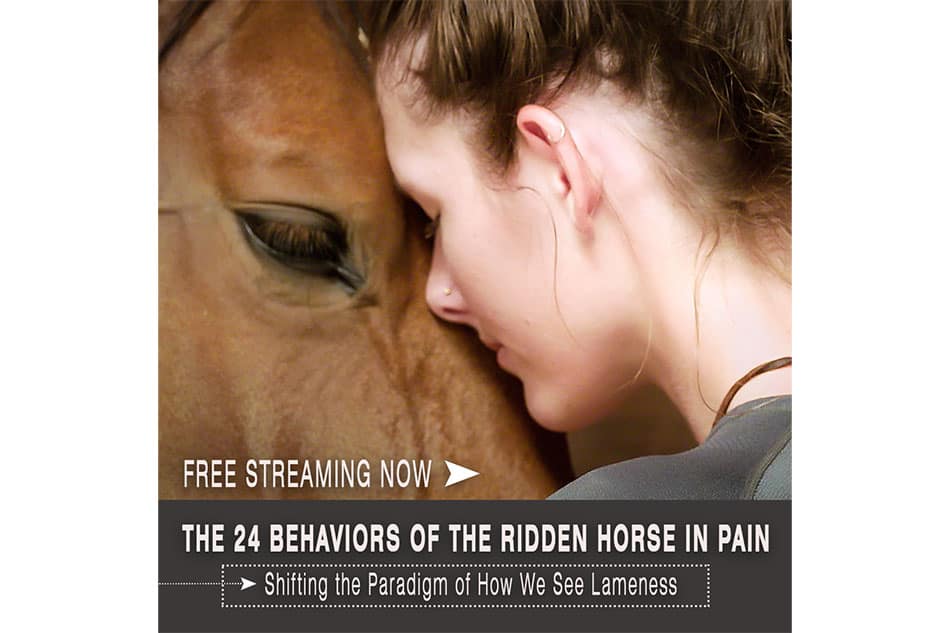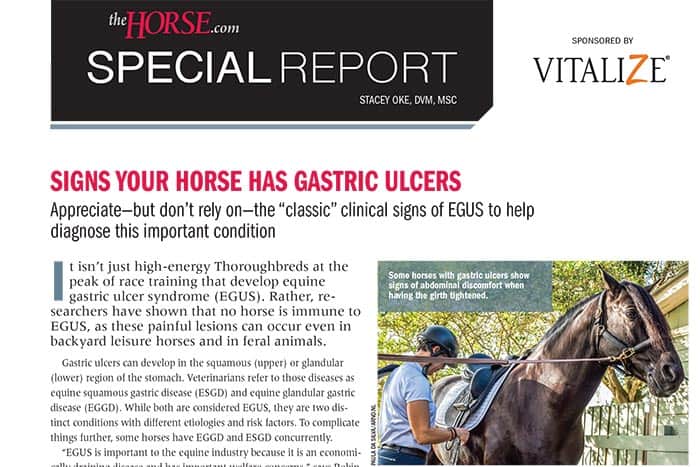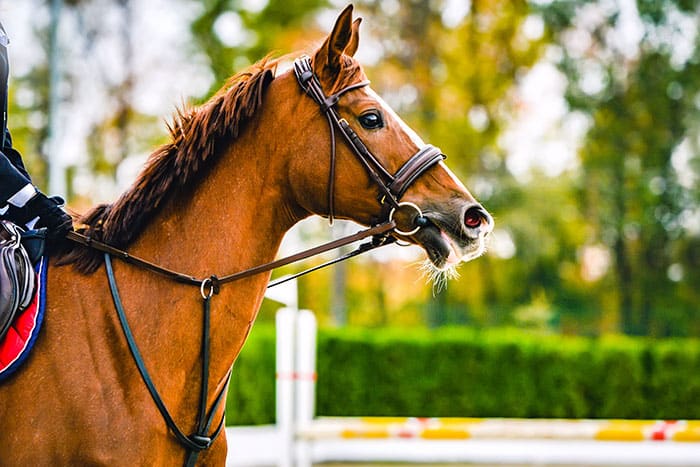
UC Davis Researchers Seek to Unlock Clues About Mule Health
Practitioners will create a grimace scale that can indicate stress, sickness.

Practitioners will create a grimace scale that can indicate stress, sickness.

A wide range of conditions can cause poor performance, but many cases circle back to lameness with a behavioral component.

Researchers assessed whether group housing situations influenced horses’ sleep routines.

A veterinarian describes some subtle signs to watch for that might point toward your horse having joint discomfort.

Study results showed horses might wait for a more appealing treat, demonstrating self-control.

The film, featuring renowned equine orthopedics expert Dr. Sue Dyson, is available for free.

Brain dissections can give researchers and scientists a better understanding of how horses think.

Results from a new study revealed some horses might associate mounting blocks with bad experiences.

Film delves into how ‘naughty’ horse behavior is often a reflection of underlying musculoskeletal problems.

A positive horse-human relationship starts with an awareness of shared goals.

Here’s how to help your weanling foal transition to adulthood as smoothly as possible.

Many equine-assisted services providers said they’d consider using retired racehorses in their programs; nearly one-third already do.

Researchers showed that three repetitions of a task per training session yielded the same results as six in a group of study horses.

A veterinarian offers tips on how you can prepare in advance to keep your horse calm despite the noise and sight of festive fireworks.

Many horses diagnosed with equine gastric ulcer syndrome via gastroscopy have no clinical signs, or the signs are so subtle owners fail to recognize them. Sponsored by Vitalize.

How diets high in starch can impact hindgut function and performance, potentially leading to problems with the ‘gut-brain axis.’
Stay on top of the most recent Horse Health news with
"*" indicates required fields